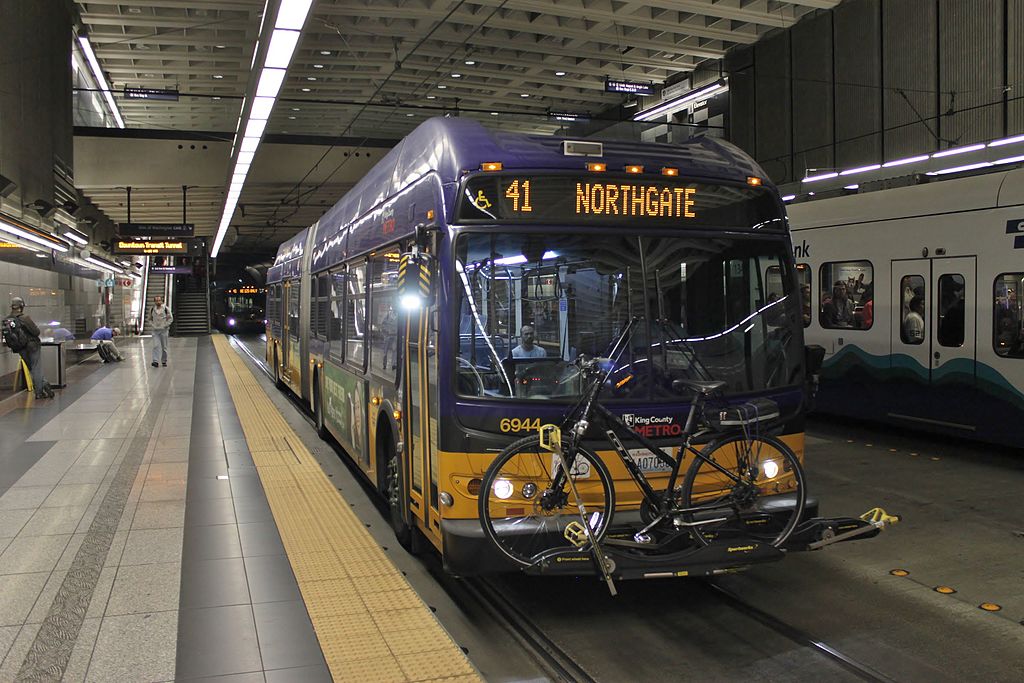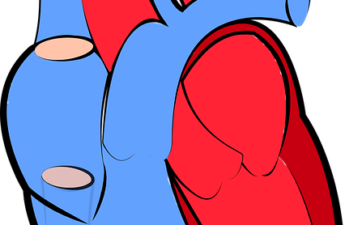
Changes come as some spring service adjustments, restructures go into effect
Metro will temporarily move to a Reduced Schedule starting Monday, March 23.
This shift comes two days after Metro’s pre-scheduled Spring Service Change goes into effect on Saturday, March 21, which will bring Eastside riders better bus connections and improved access to Seattle via Link light rail.
The Reduced Schedule is in response to a drop in ridership since the emergence of COVID-19.
These service reductions are also designed to maintain a resilient and sustainable transit system that’s able to keep our region moving every day and to ramp back up when this chapter closes.
Under the temporary Reduced Schedule starting Monday, March 23, buses will run less frequently throughout the day.
Bus service may also start later in the morning and end earlier in the evening. Some routes will not operate and nearly all routes will see individual trip cancellations.
The Reduced Schedule means that online customer information planning tools and third-party apps may be increasingly inaccurate for Metro and Sound Transit services.
While these tools will be updated to the Spring Service Change schedule, they will not reflect Metro’s temporary Reduced Schedule or Sound Transit’s reductions.
Many of Metro’s riders have heeded the steps advised by leaders and public health officials in recent weeks to limit the spread of novel coronavirus by teleworking and avoiding traveling.
Bus ridership on Wednesday, March 18, for example, was 60% less than a comparable day in 2019—a reduction of 250,000 passengers.
While many of Metro’s passengers may have other transportation options and choose transit, many others rely more heavily—or exclusively—upon transit, so decisions on where and when to reduce service were not made lightly. Metro has designed reductions to maintain some service on as many routes as possible, acknowledging that people rely on these routes to access medical care, grocery stores, and other vital services. Metro is actively talking with community groups who represent populations more likely to depend on transit, including those that represent customers with accessibility challenges. Metro will remain engaged with those groups to understand their mobility needs and determine how best to serve them during this time.
This move follows Metro’s earlier public safety actions of transitioning to daily sanitization of coaches and transit vehicles/vessels, setting up a Department Operations Center to guide fast response, and temporarily closing in-person customer service offices in favor of phone and online options.
Temporary changes to service under Reduced Schedule (which goes into effect on Monday, March 23)
Under the Reduced Schedule, most Metro routes will see fewer trips and/or reduced hours of operation. Some routes will not operate, primarily during commute times and when options on other routes exist.
Routes without changes: 11, 22, 60, 71, 73, 105, 118, 119, 128, 154, 164, 166, 204, 224, 309, 348, ST 554, 901, 903, 906, 908, 914, 915, 916, 917, 930, Snoqualmie Community Shuttle (628), Burien Community Shuttle (631)
Routes with fewer trips and/or reduced hours of operation: 1, 2, 3, 4, 5, 7, 8, 10, 11, 12, 13, 14, 15, 17, 18, 19, 21, 24, 26, 27, 28, 31, 32, 33, 36, 40, 41, 43, 44, 45, 48, 49, 50, 55, 56, 57, 60, 62, 63, 64, 65, 67, 70, 71, 73, 74, 75, 76, 77, 101, 102, 106, 107, 111, 113, 114, 116, 120, 121, 122, 123, 124, 128, 131, 132, 143, 148, 150, 153, 156, 157, 158, 159, 164, 166, 167, 168, 169, 177, 178, 179, 180, 181, 182, 183, 186, 187, 190, 192, 193, 197, 212, 214, 216, 217, 218, 219, 221, 225, 226, 230, 231, 232, 239, 240, 241, 245, 246, 249, 252, 250, 255, 257, 268, 269, 271, 301, 303, 304, 309, 311, 312, 316, 331, 342, 345, 346, 347, 348, 355, 372, 373, 773, 775, A Line, B Line, C Line, D Line, E Line, F Line, ST 522, ST 542, ST 545, ST 550, ST 554, ST 555, ST 556, 907, 913, 931, 952, Des Moines Community Shuttle (635)
Routes fully cut: 9, 29, 37, 47, 78, 125, 200, 208, 237, 308, 330, 910, ST 541, Black Diamond/Enumclaw Community Ride, Shoreline/Lake Forest Park Community Ride, Normandy Park Community Ride, Sammamish Community Ride, Juanita Community Ride, Bothell/Woodinville Community Ride, Mercer Island Community Shuttle (630).
Additionally, the following services and programs will not operate during Reduced Schedule (which goes into effect on Monday, March 23):
- Community Ride
- Via to Transit
At this time, the Access paratransit program will continue normal operations and will continue to follow its enhanced daily sanitization procedures.
Water Taxi and its two shuttles, routes 773 and 775, will continue to operate on their winter schedule through at least April 20, 2020.
Seattle Streetcar will operate on a reduced schedule starting on Monday, March 23.
- First Hill Streetcar will operate with 15-minute headways Monday to Saturday during reduced service hours, 5:30 a.m. to 8:30 p.m. There are no changes to service hours on Sundays and holidays: 10 a.m. to 8 p.m.
- South Lake Union Streetcar will not operate beginning March 23 and until further notice.
Community Van trips for essential needs such as foodbank runs will continue as long as it is feasible and there are volunteer drivers available and willing to drive in the following communities:
- Bothell / Woodinville / UW Bothell
- Duvall
- Sammamish
- Kenmore / Kirkland
- Lake Forest Park / Shoreline
- Vashon
Service levels for all of Metro’s mobility options are continually reevaluated and subject to change as Metro hears from public health officials and identifies community needs.
Long-term changes with Spring Service Change (which goes into effect on Saturday, March 21)
In order to provide the best transit system possible at this time, Metro will proceed with its Spring Service Change starting Saturday, March 21. These service improvements include the culmination of the North Eastside Mobility Project, which brings improved transit service and connections to Bothell, Kenmore, Kirkland, Redmond, and Woodinville. The Reduced Schedule uses the Spring Service Change schedule as a baseline.
After Reduced Schedule ends and regular service resumes, riders will enjoy 65 more trips on weekdays, 108 more trips on Saturdays, and 128 more added trips on Sundays across the routes in the area; and two new on-demand Community Ride shuttle services – one serving Bothell and Woodinville; and one serving Kirkland, Kenmore, and Juanita.
Full details are available on the Spring Service Change page. When regular service resumes, highlights will include:
- Route 255 will now end at UW Station and passengers will transfer to light rail.
- Starting Saturday, March 21, Route 255 will begin and end near UW Station to support a transfer to light rail. Riders should note that downtown Link construction has been delayed by one week, so light rail will not be operating between Capitol Hill and Stadium Stations in downtown Seattle from 9 p.m. Friday, March 20 through Sunday, March 22. During this time, Route 255 passengers traveling into Seattle can ride light rail from UW to Capitol Hill Station and transfer to the free Link shuttle bus to continue to downtown Seattle, or transfer to ST Route 545 to downtown Seattle at Evergreen Point Freeway Station. Additionally, for the duration of the Reduced Schedule, overall travel times to downtown Seattle via light rail will be longer and the transfer less convenient than expected as the time between trips on both bus and rail may be longer and less consistent.
- Route 255 passengers will see more frequent service for more hours of the day.
- Weekdays: Service every 15 minutes during peak commute times, every 15 minutes midday, and every 30-60 minutes at night
- Weekends: moving from service every 30 minutes to every 15 minutes during the day, from every 30-60 to every 15-30 minutes during evening and at night, and an extra hour of service at night in response to community feedback
- Significantly more service between Kirkland and Totem Lake Transit Center
- These service enhancements were made possible by reinvesting service that previously traveled to downtown Seattle
- Route 250 is a new route that will provide frequent service between Kirkland and Redmond, with connections to Bellevue.
- The new Route 250 will provide 15-minute service all day on weekdays, compared to the 30-minute service on the previous option of Route 248, which did not connect to Bellevue
- DART 930 passengers will see new midday service and gain an additional hour of service in the evenings.
- DART 930 will run every 30 minutes from 6 a.m. to 7 p.m. and provide better access to Evergreen Hospital
- Route 230 will deliver is a new route providing more direct and faster service between UW Bothell and Kirkland.
- Weekday service will operate from 7:30 a.m. to 10 p.m., running every 30 minutes until 7 p.m.
- Weekend service will run hourly from 8 a.m. to 8:30 p.m.
- Sound Transit Route 544 a new route that offers a direct connection to South Lake Union from Bellevue
- It will operate during peak times each weekday from 6:30 a.m. to 9:30 a.m. and 3:30 p.m. to 6:30 p.m., running every 15 minutes.
What transit riders need to know before traveling
- The Reduced Schedule means that online customer information planning tools and third-party apps may be increasingly inaccurate. While these tools will be updated to the Spring Service Change schedule, they may not reflect all temporary schedule changes in the Reduced Schedule. These systems may still provide useful information, such as maps and bus stop information.
- First, riders should visit Metro’s Reduced Schedule page to confirm that their route is operating and view other details, then check to see if their desired trip is coming by using “Next Departures” in Metro’s Trip Planner, or Text for Departures by texting your stop ID to 62550.
- Information about Reduced Schedule changes can be viewed at kingcounty.gov/ReducedSchedule including suggestions for alternate routes riders may want to consider.
- Riders can also contact Metro Customer Information at 206-553-3000 Monday through Friday between 6 a.m. and 8 p.m. or reach us on the web using our comment form for assistance.
- Sound Transit’s Link and Sounder services and some ST Express bus routes are also reduced. Transferring riders should check Sound Transit’s service alerts.
RELEVANT LINKS
- kingcounty.gov/ReducedSchedule
- Spring Service Change
- New Bothell, Juanita, Kenmore, and Kirkland Community Rides


